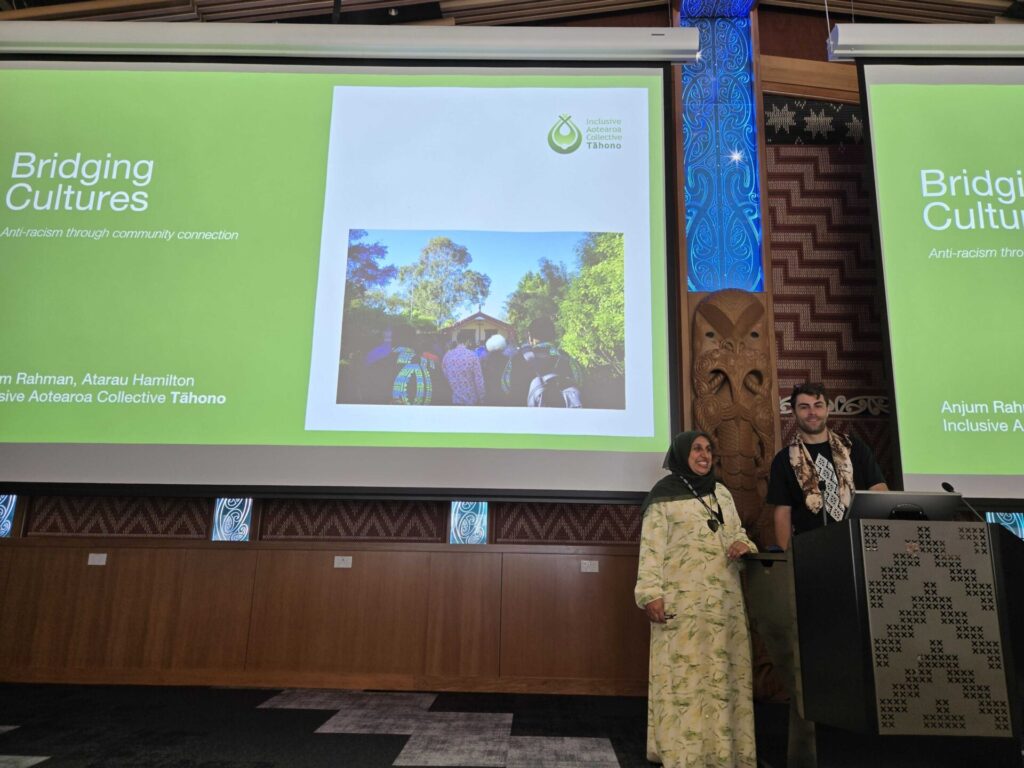Reflecting on Working to End Racial Oppression
Reflecting on WERO 2024: A Call to Transform and Stand Together for Racial Justice

Last March, we attended and presented at an international conference hosted by WERO at the University of Waikato, gathering over 260 researchers, activists, and community members from Aotearoa and around the world to explore pathways to combat racial oppression.
The WERO: Working to End Racial Oppression research programme has been dedicated to this cause for the past five years. The programme focuses on identifying the extent and persistence of racism, scrutinising both institutional and interpersonal forms of racial oppression, and developing strategies to mitigate its effects on society.
This conference was important, especially as we navigate a time when racial disharmony is being stoked by increasingly punitive legislative changes and ideological influence in Aotearoa New Zealand. As Professor Waitoki noted in her keynote, racism remains one of the most significant and modifiable challenges we face. It is not confined to any one area of life but manifests in inequitable outcomes across health, education, housing, employment, and justice.
The discussions at the conference went beyond statistics and challenges. Speakers urged us to rethink our approach to anti-racism. It’s not enough to engage in surface-level diversity, equity, and inclusion initiatives or focus solely on representation. While these are great values to reflect on and integrate into our society day-to-day, the need for deeper, transformational change has perhaps never been more evident. As the conference pointed out, we cannot be truly anti-racist without being anti-capitalist. There was a call to challenge the systems that uphold inequality and dismantle the structures that perpetuate this oppression.
These transformative conversations were echoed through a variety of presentations, ranging from addressing ethnic pay gaps to exploring radical love as a tool for social change. International perspectives were brought to the table, and the message was clear: if we are to create a just and inclusive world, we must shift our consciousness and radically reimagine how we interact with one another and the environment around us.
Our own contribution to the conference centred on our Bridging Cultures research, where we shared insights from our community-building work. The session focused on building solidarity across communities of colour and finding meaningful ways to strengthen our collective resistance against racism.
As Atarau noted from one keynote presentation, “Not all speed is movement.” There may be times when the journey feels overwhelming, but it’s essential to remain focused on the underlying theme — that change comes from working relationally and leaning into our collective knowledge and wisdom.
We believe Tāhono has a role in this transformation through our work sharing community perspectives, delivering workshops, valuing Indigenous knowledge, and coordinating collective action. Now, it is crucial that we be brave, and be strong in calling out racism and discrimination and fighting against oppression – together.


